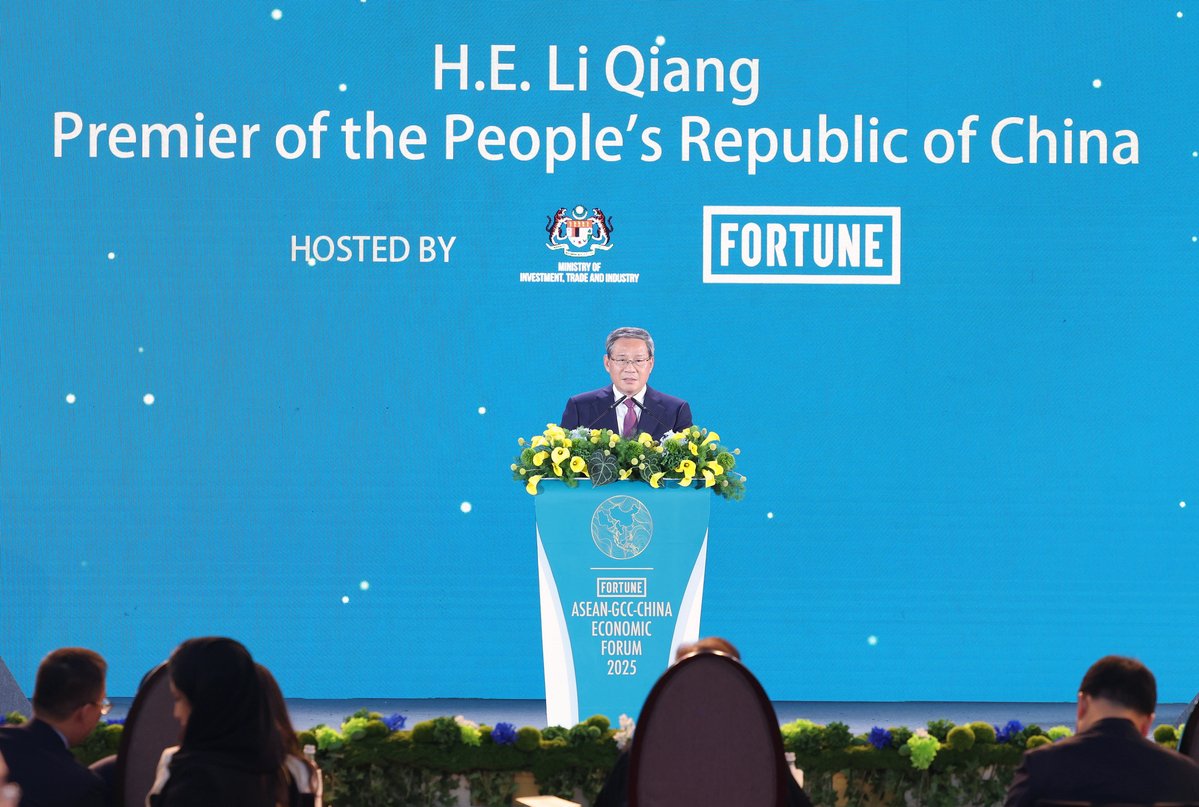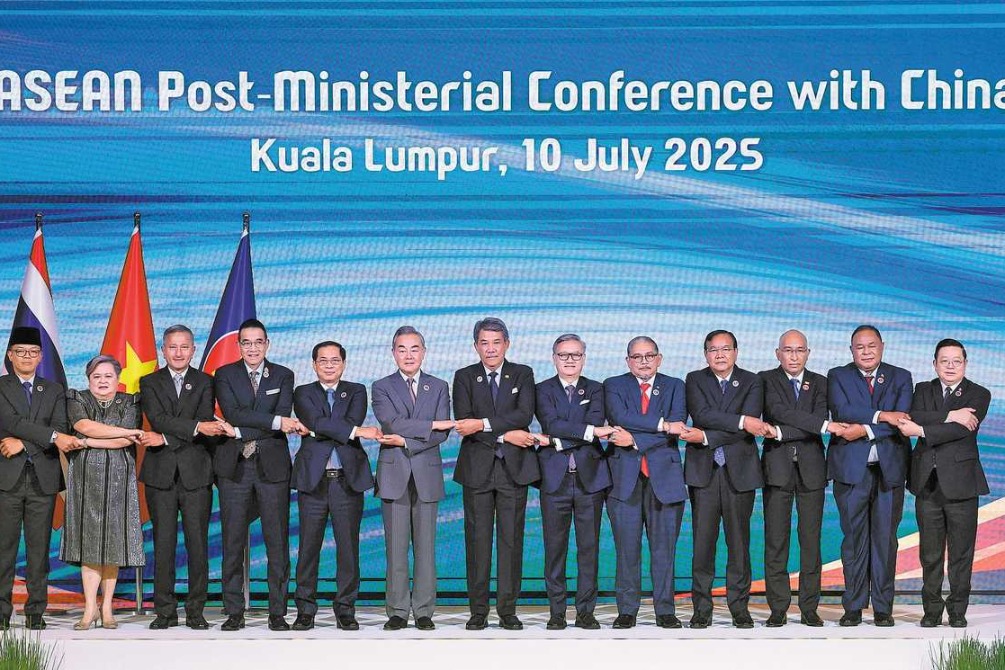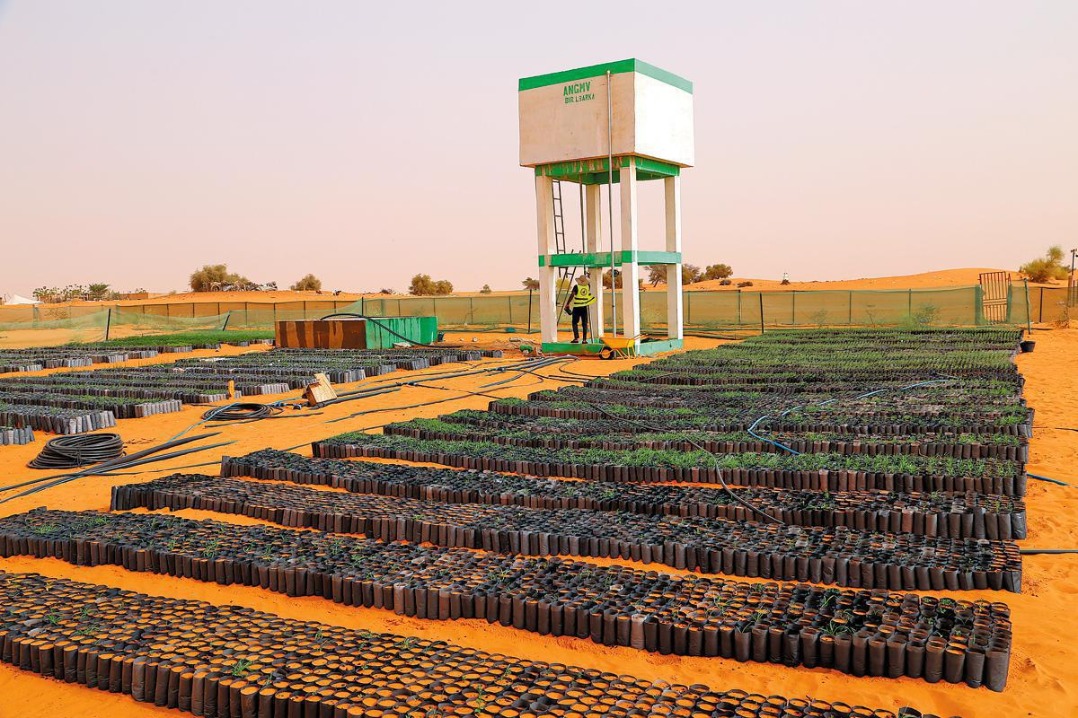Li: Scope of trilateral ties 'boundless'
China, ASEAN, GCC called on to make new breakthroughs in common growth


Premier Li Qiang returned to Beijing on Wednesday after attending a trilateral summit in Kuala Lumpur, Malaysia, among China, the Association of Southeast Asian Nations and the Gulf Cooperation Council, in efforts to expand economic engagement and bolster resilience amid global trade volatility.
Speaking on Tuesday evening at the opening of the ASEAN-GCC-China Economic Forum, also held in Kuala Lumpur, Li described the future of trilateral cooperation as "boundless like the oceans".
He emphasized that by pooling their strengths, China, ASEAN and the GCC could unlock greater development potential, foster more dynamic ecosystems of innovation and drive more efficient economic growth.
Li reiterated China's readiness to work with ASEAN and the GCC to promote trade and investment liberalization and facilitation, uphold the World Trade Organization-centered multilateral trading system, and safeguard a stable and orderly global market environment.
"Amid more decoupling practices, supply-chain disruptions and trade barriers, we can create opportunities for transformation and upgrading when we keep sharing resources and empowering one another," Li said.
He urged the three sides to expand high-tech cooperation, safeguard stable and unimpeded industrial and supply chains, and continue paving the way for new breakthroughs in common development.
Addressing the impact of heightened geopolitical conflict, rivalry and confrontation, Li called for deeper mutual trust and enhanced solidarity to create opportunities for long-term, steady development.
He also advocated greater market openness and the removal of trade barriers to unlock vast market potential and push back against protectionism and unilateralism.
"China's high-quality development will continue to inject fresh momentum into trilateral cooperation," Li emphasized.
With GDP growth of 5.4 percent in the first quarter of this year, China remains one of the world's fastest-growing major economies.
Li pledged that China will continue to expand high-standard opening-up, take more measures to advance voluntary and unilateral opening-up, and enable domestic and international circulation to reinforce each other — steps that will help companies around the world to fully share in the opportunity of China's development.
In an address to the economic forum, Malaysian Prime Minister Anwar Ibrahim highlighted China's vital role as a key partner to both ASEAN and the GCC.
He praised China's significant role in economic development, peace, stability and the defense of international fairness and justice, while reaffirming ASEAN's commitment to strengthening partnerships with China and the GCC to contribute to regional and global prosperity and stability.
The economic forum took place hours after the leaders from the three sides met in a historic summit, following which a joint statement was issued.
According to the statement, they remain committed to deepening economic cooperation, with a key priority being the promotion of free trade.
They welcome the conclusion of the ASEAN-China Free Trade Area 3.0 negotiations and look forward to the early signing and implementation of the upgrade, and also look forward to an early conclusion of the China-GCC Free Trade Agreement negotiations, the statement said.
Enhanced collaboration
Against the backdrop of profound geopolitical and economic shifts and mounting common challenges, the engagement among the three sides, which have enjoyed a long-standing friendship, has underscored the growing urgency of enhanced collaboration, experts said.
Together, China, ASEAN and the GCC account for roughly one-fourth of the world's population and economic output.
"Combining China's technology and production capacity with ASEAN's resources and markets and the GCC's capital and energy will spark powerful new growth dynamics," said Du Lan, deputy director of the China Institute of International Studies' Department for Asia-Pacific Studies.
"Enhanced cooperation helps foster a vibrant economic circle and growth pole, which is highly important both to their respective economic prosperity and to peace and development in Asia and the world," she added.
Built on complementarity, non-exclusivity and a development-first approach, the new multilateral cooperation model robustly defends multilateralism and offers Global South countries a collective framework to buffer external risks, injecting stability and fresh momentum into shared development prospects of the Global South, Du said.
































